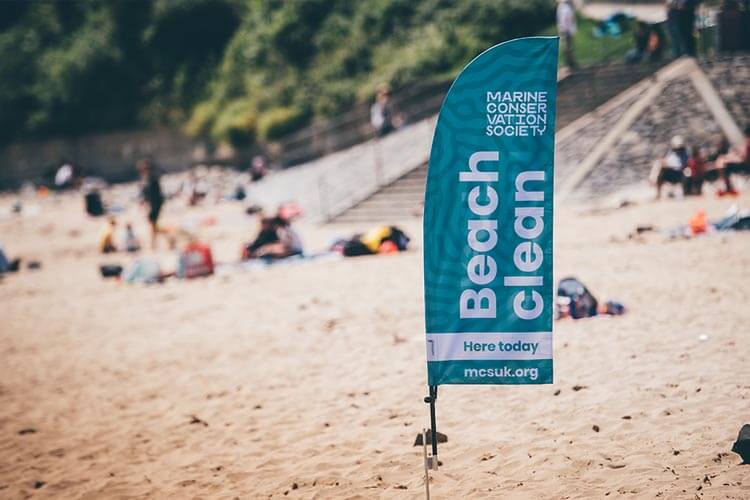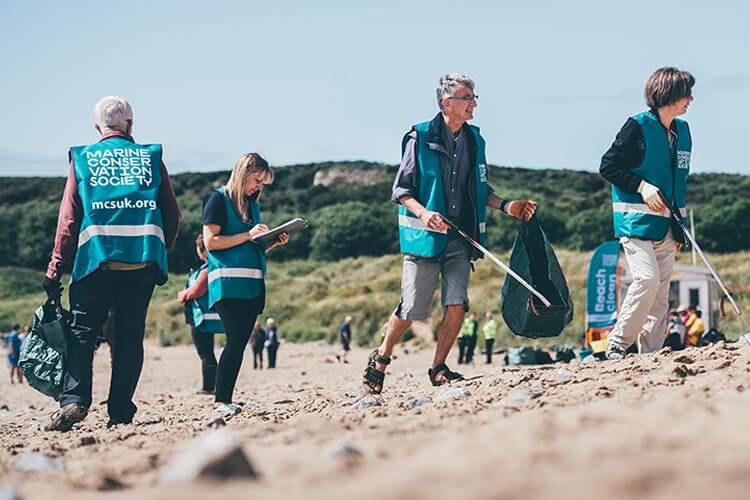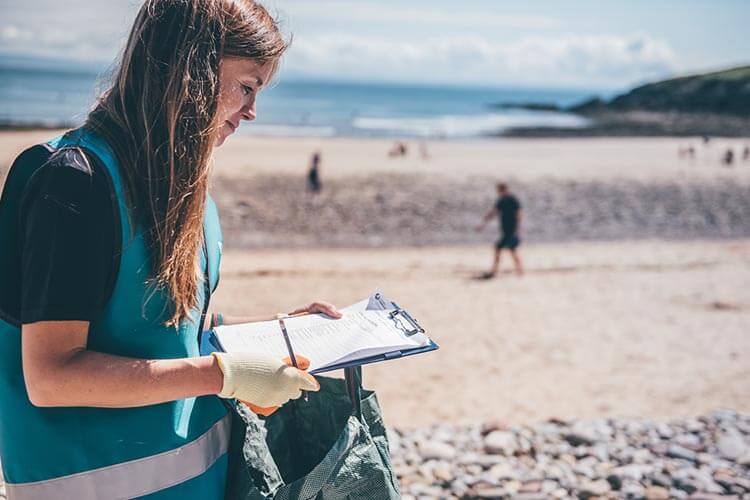
By DIVE Staff
The Marine Conservation Society’s annual Great British Beach Clean is back, running this year from 15 – 24 September 2023. This year will mark the 30th anniversary of a cleanup event that has seen thousands of volunteers take part in beach cleans and litter surveys across the UK.
More than 100 beach cleans have already been organised across the UK from Poltesco, Cornwall to Alness Point in the Highlands. Since much of the pollution found on beaches makes its way there from inland via streams, rivers and drains, those unable to travel to the coast can join the Marine Conservation Society’s Source to Sea citizen science project, which will enable anyone to get involved, from anywhere in the UK and Ireland.
The data collected from both coastal and inland cleanups will be analysed and collated to help the MCS campaign for positive change to protect the ocean. MCS campaigns have already helped implement plastic bag charges, better wet-wipe labelling, and support a tax on single-use plastic items.
Related articles

‘We wouldn’t be able to do the work we do at the Marine Conservation Society without the support of our volunteers heading out to the coast to collect vital information on what’s polluting our seas,’ said Clare Trotman, Beachwatch Officer at the Marine Conservation Society.
‘With beach cleans happening across the UK, from remote beaches to busy seaside resorts, there are so many ways to get involved and support us this year. If you can’t make it to the beach, you can still take part by doing a local litter pick and survey where you live.’
The 2022 Great British Beach Clean saw 30 miles of beach cleared and surveyed by 5,344 volunteers, who collected 141,048 pieces of litter between them.
The amount of litter recorded on beaches during the 2022 cleanup decreased across the UK and Channel Islands by 11 per cent compared to 2021, with reductions seen across all regions.
Some of the most commonly found items on beaches are from sewage discharges, with items such as sanitary products and wet wipes, recorded on 75 per cent of beaches across the UK in 2022.

‘Sewage-related litter, like wet wipes and period products, is often a sign of a sewage discharge nearby,’ said Dr Laura Foster, Head of Clean Seas at the Marine Conservation Society.
‘Sewage not only contains misflushed items but also a toxic soup of chemicals including “forever chemicals” and pharmaceuticals. Entering our beautiful seas untreated, they wreak havoc with the ocean’s delicate balance. But it doesn’t have to be this way.
‘The data our volunteers collect on sewage-related litter this year will help us understand the scale of the problem and keep fighting for sewage-free seas.’
During this year’s Great British Beach Clean, MCS is asking volunteers to take pictures of sewage-related items or sewage outlet pipes they spot during their clean.
Volunteers can share pictures with the charity by tagging @mcsuk on social media and using the #SewageFreeSeas hashtag, or submit them to the charity via their website, to help show how pervasive the issue is.
Find out more at www.mcsuk.org/sewage-free-seas, and to find, join or start a Great British Beach Clean event near you, visit: www.mcsuk.org/gbbc



